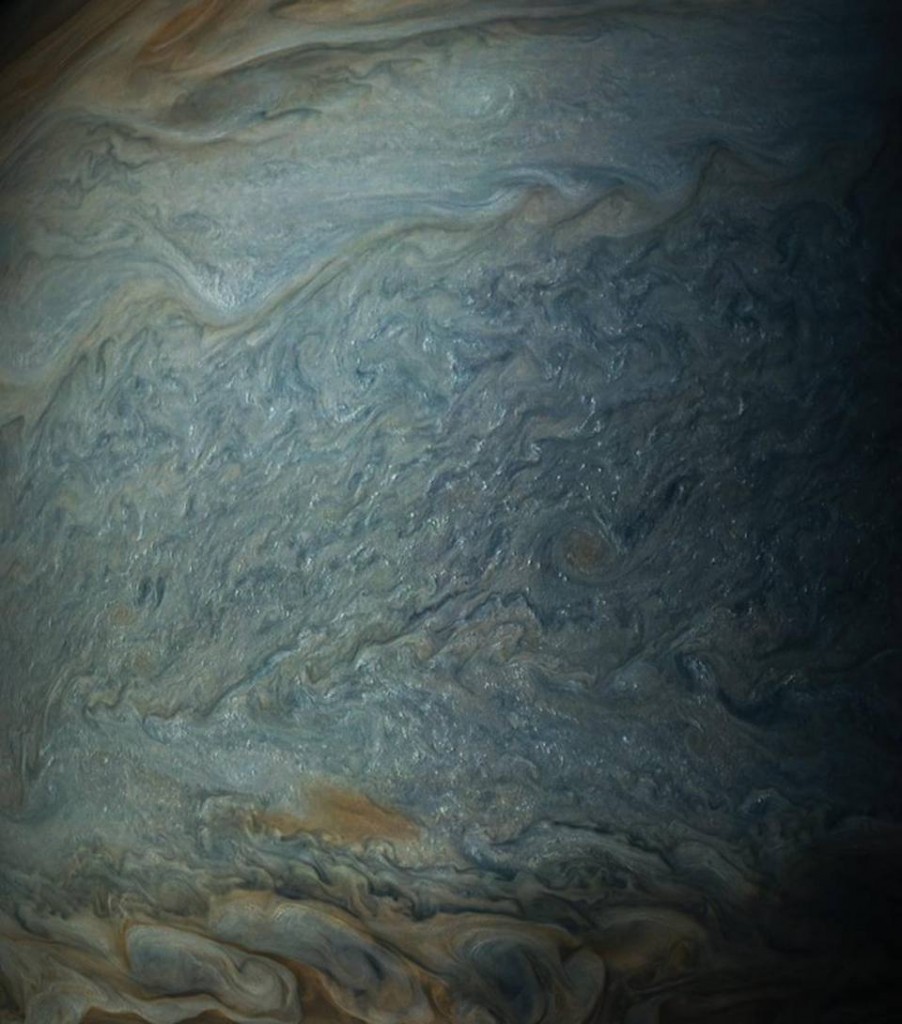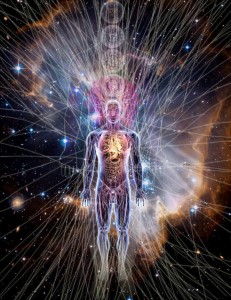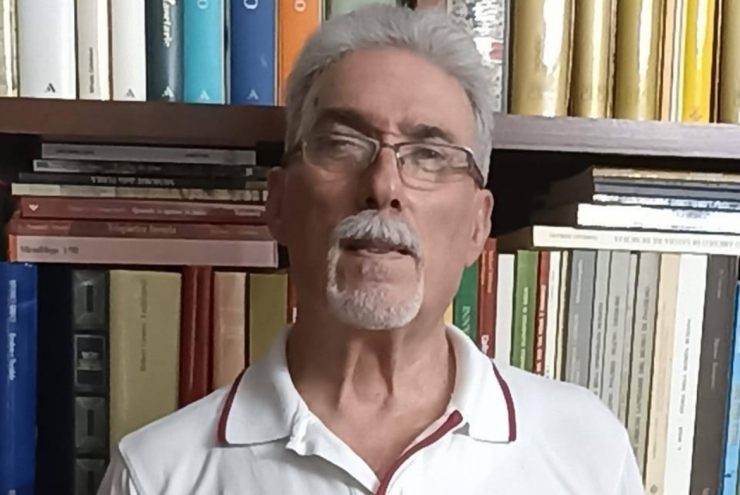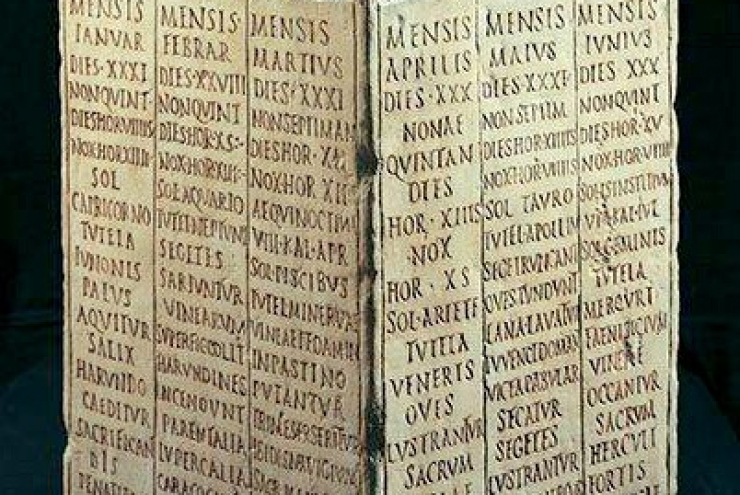 Theology is a kind of afterthought of the divine using a philosophical approach. The religious sphere is interpreted under the light of reason, of logos, in a philosophical way. The philosophy of Plato and his followers analyzed critically the ancient mythology and generated a new understanding of divinity through theology. This article introduces the first steps of this long process, that will lead to the creation of the majestic “Platonic Theology” by Proclus and other important texts.
Theology is a kind of afterthought of the divine using a philosophical approach. The religious sphere is interpreted under the light of reason, of logos, in a philosophical way. The philosophy of Plato and his followers analyzed critically the ancient mythology and generated a new understanding of divinity through theology. This article introduces the first steps of this long process, that will lead to the creation of the majestic “Platonic Theology” by Proclus and other important texts.
Before the time of philosophy, men of wisdom tried to answer to the great questions by mythical and poetical explanations, taking as reference the works of Homer or Hesiod, that were understood as authoritative texts for the interpretation of the world. Natural phenomena like earthquake, floods, and famines were explained via religion and mythology. For instance, in the first book of Iliad, the plague that is exhausting the Greek army is explained as the intervention of Apollo, after Achilles’ request. Similarly, each plague was understood as an aversion of one or more gods against the part that was suffering. People was fighting back sickness by rituals, sacrifices, and offerings.
Early philosophers of the Milesian school changed this approach by looking for an explanation of the phenomena in the internal mechanisms of nature itself, rather than in a divine intervention. In this way they created philosophy and in particular the very same concept of “natural phenomenon”. In the early centuries of philosophy, when the thought became free from the religious schemes, it became a powerful tool to investigate over the world. A new lexicon was gradually built up with concepts like first cause, becoming, the reality and appearance of things, the being, the nous, the logos and the psyche.
As soon as the philosophers moved their main interest from the material world to the sky, they started investigating on the divine. In the works of the first philosophers that were studying the nature of the divine, we can identify at least three types of arguments: 1) the critic to the traditional religious paradigm; 2) the introduction of new paradigms; 3) the reinterpretation of tradition with the new paradigms. Although the first appearance of these three types occurred in a temporal sequence which reflects the order presented above, the three types existed together in the centuries along the whole philosophical discussion of the polytheistic world(*).
Xenophanes of Chalcedon (570 – 475 BCE) is generally associated to the Eleatic school, nevertheless he focused his research mainly toward theology, while the other thinkers of the Eleatic school were more interested on ontology (it is sufficient to remember the Parmenides’ Being). Xenophanes criticized the traditional Homeric conception of the Gods, for the reason that he considered a mistake their anthropomorphic representation, not only for their physical appearance, but also for their feeling, their personality, their illicit behaviors and smart tricks. He considered absurd also the tales on the birth of Gods, because they would logically imply that the Gods do not live in eternity but in a temporal dimension, and therefore one should accept also their death. As the Gods live out of the realm of time, it is not possible that they move from one place to another (in physics the velocity is the relation between the space and the time needed to cover it, so there is no movement without time). As a consequence, mythology cannot be true about divinity, or at least cannot be accepted word by word, without an interpretation.
Xenophanes started a new conception of the Divine through a criticism to the traditional paradigm, however he was not able to progress in the ontological direction and in the proposition of a valid alternative model.
Plato accepted the thesis of Xenophanes about the criticism to the traditional conception of divinity and, moreover, introduced new myths. The Myth of the Cave is a metaphor of the knowledge of the reality and, in contrast with traditional myths, it is developed on a philosophical idea. Similarly the Demiurge is introduced by a reasoning on the universe, as a divinity necessary for the order of the universe. Also the models of human soul and of the World Soul are presented as an ordered mythological entity after a deep philosophical thought. Philosophy, with Plato, happened to build a cosmological structure that could be used in place of the traditional one. Plato never attempted to reconcile the classic tradition with philosophy, with the exception of the identification of its “own” Demiurge with the traditional Zeus. With Plato, anyway, we can state that there was a preparation for the reinterpretation of the tradition through new mythological models.
When Plato died in 347BCE, his nephew Speusippus became the leader of the Academia for eight years. Speusippus developed a philosophy with substantial difference from Plato, and rejected the doctrine of forms. Xenocrates, who left the Academia during Speusippus’ lead because of conflicts , succeeded him in 339BCE and led the Academia for 25 years.
Xenocrates restored the doctrine of forms as divine and separate cause. Besides, following a Pythagorean approach, he considered the first ten numbers as ideal and origin of all the other numbers. In particular, he considered the Monad as the unitary-identity principle and the Dyad as the diversity-multiplicity principle. He also started a reinterpretation of the religious tradition with the new philosophical models.
What is the meaning of the Platonic and Neoplatonic reinterpretation of religion by philosophy? In general, metaphysics defines a layered structure of reality, from a unique supreme principle down to the infinite multiplicity of matter. Along the emanation process it is possible to identify some functional entities, i.e. entities with a clear function in the coherent metaphysical and cosmological structure, like for instance the psyche, the World Soul, the Demiurge and the Nous. The theological reinterpretation consists in finding the relevant correspondences between the traditional mythology and the rational philosophical thought.
Xenocrates anticipated the Neoplatonic cosmology by stating that the whole universe is full of divinity, from the Gods at the superior levels, down to the daemons that operate at the sublunary world, or in other words at our level. He also stated that there is a divine presence also in matter itself. He divided reality in three worlds: 1) The world external or over the sky vault, called hyperuranium; 2) the sky vault or uranos; 3) the world under the sky vault. These three worlds reflect the different way of knowledge. The hyperuranium can be known by the pure noetic knowledge or, according to Plato’s lexicon, by episteme. The Sky Vault represents the empirical knowledge, in other words the doxa. The world below the sky is the world known by the senses, the perceptible world. Besides, he associated the three Moirai to the three worlds just described. The eldest is Atropos (unturned), who inflexibly decides the fate and cut by her scissors the yarn of life of the mortals. She represents the hyperuranium, the intellegibile realm. Lachesis (allotter) is identified with the celestial vault, while Clotho (the spinner) is the perceptible world.
Besides, Xenocrates stated that the Monad had male characteristics, with the role of Father of the Sky, the odd principle, the first god, and identified him with Zeus; and he stated that the Dyads, principle of generation, had female characteristics and considered her as Mother of Gods and of the planets below, and Queen of whatever is under the sky, the World Soul.
The Hyperuranium is under the supremacy of the Monad-Nous-Zeus, while the Dyad-World Soul-Mother Goddes rules the world below, also the sublunary one. However the Dyad dwells also in the Hyperuranium where she is ruled by Monad-Nous-Zeus, so that she is also a channel between the Nous and the whole universe, according to Plato’s vision. In this way the Demiurge is ruling the world even if he is dwelling in the eternal realm in hyperuranium.
In this sacral universe full of divinity, daemons have an important role of mediation between humans and Gods, and they participate also in sacrifices and in oracles. Daemons are not necessarily good, as there are also evil ones. This fact would explain the constant presence at our level of the fight of good against evil. Daemons may be also human souls that after death are free from the bodies. This inclusion of daemons in metaphysics had a great influence in the later philosophy, especially in Porphyry, Iamblichus (especially the work On the Mysteriis – Περὶ τῶν Αἰγυπτίων μυστηρίων), and Proclus.
The new theological interpretation of divinity had no consequences on the religious plane. The orthopraxis of the polytheism left full liberty of interpretation and was pacifically living together with the different theological interpretation, generally in a tolerant environment. Later neoplatonic authors were not only great philosophers and theologians, but also ascetic and theurgians, in a profitable union of tradition with rational investigation. For this reason, still today, we are entitled to talk about philosophy and theological interpretation in a website like this, knowing that the discussion does not diminish the religious praxis but, on the contrary, adds value to the understanding of our position in front of divinity.
Mario Basile
(*) When Christian monotheism and its theocracy took the power, any serious theological discussion was cut off. In fact, if the whole classic philosophy is based on the principle of reason – or logos – by which we can understand not only the whole universe, by our affinity with the World Soul, but we can also reach the Universal Mind, on the other hand Christianity deconstructed philosophy and reason by conferring, as in the John’s gospel, the logos to a semi-divine mortal (Jesus), whom faith is the only access to. In a dry summary: do not think, just believe! Due to its lack of serious philosophical arguments, Christianity was rejected as superstition by many educated thinkers.

















